Basic Primer on Gunpla (Gundam) for ISM
Posted: Sun Nov 09, 2014 3:21 pm
Hey Guys,
I have seen on the forums that there are a lot of folks who have expressed interest in trying to build some Gunpla but are confused over which kit to get or any other variety of reasons. This is meant to be a quick guide to help you pinpoint what you want and how to get it. Gunpla was how I got into modeling and also what eventually led me to ISM and I think generally it’s a great part of the hobby that isn’t fully exploited.
Disclaimer: I’m not your pedigreed Gunpla expert. I’m not from Japan and of the many TV series I only follow one (Gundam Build Fighters). I don’t know these super detailed specs of each gundam or their histories etc… I just enjoy the builds and how the models look.
---------------------------------------------------------------
Conceptually it's a bit strange. The RG kits brought MG quality to a smaller scale and this is supposed to be something in between HG and MG brought to MG scale. But as long as they release big and exotic kits, this idea may pan out.
The first of the line, the Nightingale (pictured above) took the Shizuoka Hobby show by storm in September and there are hopes that at least 2 more designs will be unveiled at the World Gunpla Expo Nov 21.
---------------------------------------------------------------------------
Pros
In general I think the ISM modeler will be impressed by the engineering and precision in these kits. If you have worked with crappy kits before or regularly, you will be a happy camper when working on these. Gundam kits are snap fit and that requires very fine precision. Furthermore, you are never going to be stumped on how to build a kit.
Additionally, no one is ever going to say "Well that's the wrong color" or "You got this teeny detail wrong." It's sic-fi so you can run wild with the build, details and colors.
Generally speaking, the kits come with loads of weapons and accessories (No Hasegawa treatment here). Sometimes too many accessories to keep track of though.
Cons
The biggest gripe I have about Gundam kits is that there are too many variants/reboxes of the same kit out there. In recent years that has gotten a lot better and they have released totally new designs. It's a business so i understand why they do it but it's still annoying.
However, if you take your time and value your builds so that you only build a few gundam a year you can make sure you don't get a small parts variation kit AND won't run out of new exciting gundam to build.
Some people don't like Gundam because it's too "toyish" or they are rivet counters who want something real to model after. I can understand where this sentiment comes from. Many modelers in Japan only panel line and don't paint and thus of course its going to look toyish, even after a matte coat. But that's more of an issue of real world constraints rather than the kit itself. Tokyo has 30 million people jam-packed together like sardine cans. If you are a kid, having space for a modeling shed is really rare and your neighbors being so close will definitely complain about fumes or noise.
If you do paint these kits, you can apply any amount of realism you want. I can understand it not being easy to relate to gundam if you have never been exposed to it but it's a thing you shouldn't miss IMO.
--------------------------------------------------------
Concluding Remarks
I think Gunpla is a great part of the modeling hobby. It really allows the imagination to run wild. Customization is fully encouraged. The engineering makes it so you can genuinely enjoy the build and focus your frustrations on other parts of the model kit building process. For me, how I feel while I'm modeling is a big part of why its my hobby so I think Gunpla allows me to enjoy not only the build but the end result as well!
There's also a packed community in Asia and the US who are rabidly passionate about Gunpla. It's great for seeing new ideas and sharing builds. Plus it doesn't hurt to find good suppliers of kits who sell and ship them for cheap!
So where should I start?
My recommendation is to first assess the level of modeler you are. If you are a beginner note that, if you are advanced, note that as well.
For both types, the key is to find a design that you like.
For beginners, I would recommend the HG version of it. Once you have one under your belt and its done well, I would recommend the RG line before jumping up into MG.
For advanced, I would recommend you start with RG. If you are very advanced and have fat fingers or don't like small kits, MG is the place to start. The only reason I don't advise PG to very advanced guys to start off with is simply because of the cost. You don't want to realize on your first build you don't like gundam after plopping down a ton of cash. The complexity of the build is never going to stump an advanced modeler.
Thanks for reading! Feel free to ask any questions, I'm more than happy to answer them.
References
Hobbylink TV on youtube has Gunpla TV series, once every two weeks. It's a great series on Gunpla news.
Gundam Wikia: http://gundam.wikia.com/wiki/The_Gundam_Wiki
Syd from Gunpla TV has his own blog including ratings of kits. http://www.gaijin-gunpla.com
For those of you who do want to get into the TV series, there is the official Gundam TV portal on youtube. Gundaminfo which releases full episodes in English subtitles.
EDIT2: Added Reborn 100 line.
I have seen on the forums that there are a lot of folks who have expressed interest in trying to build some Gunpla but are confused over which kit to get or any other variety of reasons. This is meant to be a quick guide to help you pinpoint what you want and how to get it. Gunpla was how I got into modeling and also what eventually led me to ISM and I think generally it’s a great part of the hobby that isn’t fully exploited.
Disclaimer: I’m not your pedigreed Gunpla expert. I’m not from Japan and of the many TV series I only follow one (Gundam Build Fighters). I don’t know these super detailed specs of each gundam or their histories etc… I just enjoy the builds and how the models look.
---------------------------------------------------------------
WHAT is a Gundam
A gundam is a humanoid mecha set in a time in the somewhat distant future. Different TV series have different backstories but essentially there are two different factions that fight each other. That is a rather super simplified account but intentionally so here because from Bandai there are essentially two “trees” of gundam design. There are two classic types, the RX-78 and the Zaku II. These are the flagship gundam models and there are a lot of variants to these.
RX-78
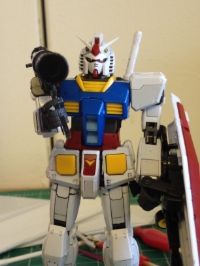
Zaku II
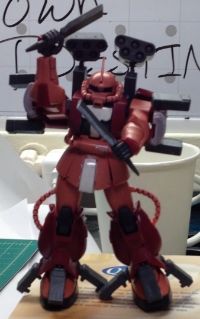
---------------------------------------------------------
Grades
There are a number of different grades or quality levels to gundam kits. They are explained here.
High Grade (1/144 scale)
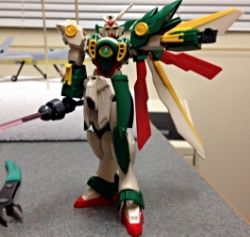
These are the basic kits. These are the most analogous to traditional modeling in the sense that it’s just a piece by piece construction of the subject. The nice thing about this grade is that there is a HUGE variety and being in 1/144 scale does not mean it is a small kit. Bandai will sometimes release a very exotic gundam design or huge design in this scale to keep the price point down. The disadvantage is that the models are only somewhat poseable and it doesn’t have super extreme detail. But if there’s a particular gundam you like, it’s almost guaranteed to be available at least in High Grade.
To the ISM modeler they may not be wowed by the detail in these kits, but its a good entry point if you are on a budget.
NOTE: Gundam will label their HG kits by “HG” followed by an abbreviation from which tv show or manga it appeared in. So for example “HGUC” is High Grade Universal Century, while HGBF is High Grade Build Fighters. They are both still High grades.
Master Grade (1/100)

These are the staple of the Bandai Gundam model kits. Unlike HG kits, you first build a fully functional inner frame.
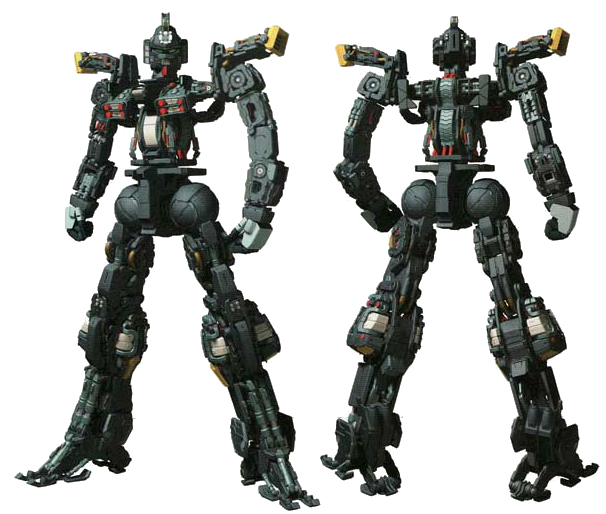
This frame allows from maximum articulation and pose ability. Afterwards you add on the armor piece by piece. It's a more organic form of model building but different to what the traditional modeler is used to. The emphasis between frame and armor differs from what year the model was released. Prior to 2013, MGs for the most part emphasized frame. The newer ones build a simpler frame and go to town on the armor. This has its tradeoffs.
These are more expensive than the HGs but the wow factor is definitely there. Far more detailed and finished.
Real Grade (1/144)

These kits put MG quality into a smaller scale. They are designed to be more accessible and allow those who may only buy HG kits to experience the higher quality builds and construction. These are actually my recommendation on where the experienced ISM modeler should start. The only drawback is that this line is rather new and so selection is still a bit limited. Priced right between HG and MG kits. Have gotten rave reviews across the board.
Perfect Grade (1/60)

These are bandai's top of the line kits. The best of everything and some come with LED lighting systems. A bigger scale and maximum engineering. Sometimes they unveil new technologies on these kits. The only drawback is cost. In Japan they retail around 200-250 dollars and these are big big kits. Shipping a big ol kit across the ocean makes it even more expensive. Because of the awesome detail and engineering, these kits are not released that often. The last new design was released in 2010 but at the World Gunpla Expo on Nov. 21, a new PG Unicorn will be unleashed. It supposedly sells a separate LED set that includes 1 LED for the head and an unprecedented 29 other LEDs spread throughout the body for a Psycho Frame.
Mega Size (1/48)

This is a relatively new offering. THESE KITS ARE HUGE. About 1.5 ft tall. However, these are actually geared to younger children just starting out in Gunpla. Think of them as HG quality taken to a huge scale. You don't actually need model nippers and the builds themselves are quite simple. You can actually snap fit entire runners together ("Runner Sandwich") and then remove parts from the runners. Some come with LEDs inside. These are for if you have kids or if you just want the WOW factor in your collection.
Super Deformed Kits

These are small kits they emphasize the big head and the small body for cartoony proportions. These are very cheap and accessible and surprisingly popular.
A gundam is a humanoid mecha set in a time in the somewhat distant future. Different TV series have different backstories but essentially there are two different factions that fight each other. That is a rather super simplified account but intentionally so here because from Bandai there are essentially two “trees” of gundam design. There are two classic types, the RX-78 and the Zaku II. These are the flagship gundam models and there are a lot of variants to these.
RX-78

Zaku II

---------------------------------------------------------
Grades
There are a number of different grades or quality levels to gundam kits. They are explained here.
High Grade (1/144 scale)

These are the basic kits. These are the most analogous to traditional modeling in the sense that it’s just a piece by piece construction of the subject. The nice thing about this grade is that there is a HUGE variety and being in 1/144 scale does not mean it is a small kit. Bandai will sometimes release a very exotic gundam design or huge design in this scale to keep the price point down. The disadvantage is that the models are only somewhat poseable and it doesn’t have super extreme detail. But if there’s a particular gundam you like, it’s almost guaranteed to be available at least in High Grade.
To the ISM modeler they may not be wowed by the detail in these kits, but its a good entry point if you are on a budget.
NOTE: Gundam will label their HG kits by “HG” followed by an abbreviation from which tv show or manga it appeared in. So for example “HGUC” is High Grade Universal Century, while HGBF is High Grade Build Fighters. They are both still High grades.
Master Grade (1/100)

These are the staple of the Bandai Gundam model kits. Unlike HG kits, you first build a fully functional inner frame.

This frame allows from maximum articulation and pose ability. Afterwards you add on the armor piece by piece. It's a more organic form of model building but different to what the traditional modeler is used to. The emphasis between frame and armor differs from what year the model was released. Prior to 2013, MGs for the most part emphasized frame. The newer ones build a simpler frame and go to town on the armor. This has its tradeoffs.
These are more expensive than the HGs but the wow factor is definitely there. Far more detailed and finished.
Real Grade (1/144)

These kits put MG quality into a smaller scale. They are designed to be more accessible and allow those who may only buy HG kits to experience the higher quality builds and construction. These are actually my recommendation on where the experienced ISM modeler should start. The only drawback is that this line is rather new and so selection is still a bit limited. Priced right between HG and MG kits. Have gotten rave reviews across the board.
Perfect Grade (1/60)

These are bandai's top of the line kits. The best of everything and some come with LED lighting systems. A bigger scale and maximum engineering. Sometimes they unveil new technologies on these kits. The only drawback is cost. In Japan they retail around 200-250 dollars and these are big big kits. Shipping a big ol kit across the ocean makes it even more expensive. Because of the awesome detail and engineering, these kits are not released that often. The last new design was released in 2010 but at the World Gunpla Expo on Nov. 21, a new PG Unicorn will be unleashed. It supposedly sells a separate LED set that includes 1 LED for the head and an unprecedented 29 other LEDs spread throughout the body for a Psycho Frame.
Mega Size (1/48)

This is a relatively new offering. THESE KITS ARE HUGE. About 1.5 ft tall. However, these are actually geared to younger children just starting out in Gunpla. Think of them as HG quality taken to a huge scale. You don't actually need model nippers and the builds themselves are quite simple. You can actually snap fit entire runners together ("Runner Sandwich") and then remove parts from the runners. Some come with LEDs inside. These are for if you have kids or if you just want the WOW factor in your collection.
Super Deformed Kits

These are small kits they emphasize the big head and the small body for cartoony proportions. These are very cheap and accessible and surprisingly popular.
Reborn 100 (1/100)

This is Bandai's newest line. The Reborn 100 are basically larger and more intricate designs that would be prohibitively expensive to bring to MG style. So while these kits are the same size as Master Grade, they don't have an inner frame, making the construction similar to HG kits. However, what differs from HG is much more detail and generally higher quality construction.
Conceptually it's a bit strange. The RG kits brought MG quality to a smaller scale and this is supposed to be something in between HG and MG brought to MG scale. But as long as they release big and exotic kits, this idea may pan out.
The first of the line, the Nightingale (pictured above) took the Shizuoka Hobby show by storm in September and there are hopes that at least 2 more designs will be unveiled at the World Gunpla Expo Nov 21.
---------------------------------------------------------------------------
Pros
In general I think the ISM modeler will be impressed by the engineering and precision in these kits. If you have worked with crappy kits before or regularly, you will be a happy camper when working on these. Gundam kits are snap fit and that requires very fine precision. Furthermore, you are never going to be stumped on how to build a kit.
Additionally, no one is ever going to say "Well that's the wrong color" or "You got this teeny detail wrong." It's sic-fi so you can run wild with the build, details and colors.
Generally speaking, the kits come with loads of weapons and accessories (No Hasegawa treatment here). Sometimes too many accessories to keep track of though.
Cons
The biggest gripe I have about Gundam kits is that there are too many variants/reboxes of the same kit out there. In recent years that has gotten a lot better and they have released totally new designs. It's a business so i understand why they do it but it's still annoying.
However, if you take your time and value your builds so that you only build a few gundam a year you can make sure you don't get a small parts variation kit AND won't run out of new exciting gundam to build.
Some people don't like Gundam because it's too "toyish" or they are rivet counters who want something real to model after. I can understand where this sentiment comes from. Many modelers in Japan only panel line and don't paint and thus of course its going to look toyish, even after a matte coat. But that's more of an issue of real world constraints rather than the kit itself. Tokyo has 30 million people jam-packed together like sardine cans. If you are a kid, having space for a modeling shed is really rare and your neighbors being so close will definitely complain about fumes or noise.
If you do paint these kits, you can apply any amount of realism you want. I can understand it not being easy to relate to gundam if you have never been exposed to it but it's a thing you shouldn't miss IMO.
--------------------------------------------------------
Concluding Remarks
I think Gunpla is a great part of the modeling hobby. It really allows the imagination to run wild. Customization is fully encouraged. The engineering makes it so you can genuinely enjoy the build and focus your frustrations on other parts of the model kit building process. For me, how I feel while I'm modeling is a big part of why its my hobby so I think Gunpla allows me to enjoy not only the build but the end result as well!
There's also a packed community in Asia and the US who are rabidly passionate about Gunpla. It's great for seeing new ideas and sharing builds. Plus it doesn't hurt to find good suppliers of kits who sell and ship them for cheap!
So where should I start?
My recommendation is to first assess the level of modeler you are. If you are a beginner note that, if you are advanced, note that as well.
For both types, the key is to find a design that you like.
For beginners, I would recommend the HG version of it. Once you have one under your belt and its done well, I would recommend the RG line before jumping up into MG.
For advanced, I would recommend you start with RG. If you are very advanced and have fat fingers or don't like small kits, MG is the place to start. The only reason I don't advise PG to very advanced guys to start off with is simply because of the cost. You don't want to realize on your first build you don't like gundam after plopping down a ton of cash. The complexity of the build is never going to stump an advanced modeler.
Thanks for reading! Feel free to ask any questions, I'm more than happy to answer them.
References
Hobbylink TV on youtube has Gunpla TV series, once every two weeks. It's a great series on Gunpla news.
Gundam Wikia: http://gundam.wikia.com/wiki/The_Gundam_Wiki
Syd from Gunpla TV has his own blog including ratings of kits. http://www.gaijin-gunpla.com
For those of you who do want to get into the TV series, there is the official Gundam TV portal on youtube. Gundaminfo which releases full episodes in English subtitles.
Gunpla porn 


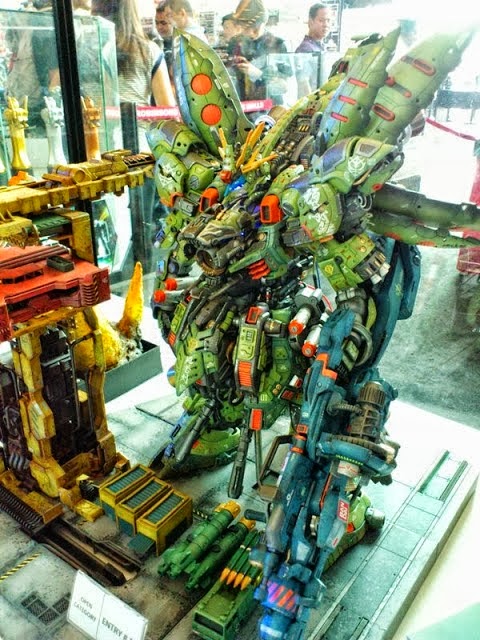
The MG Sinanju
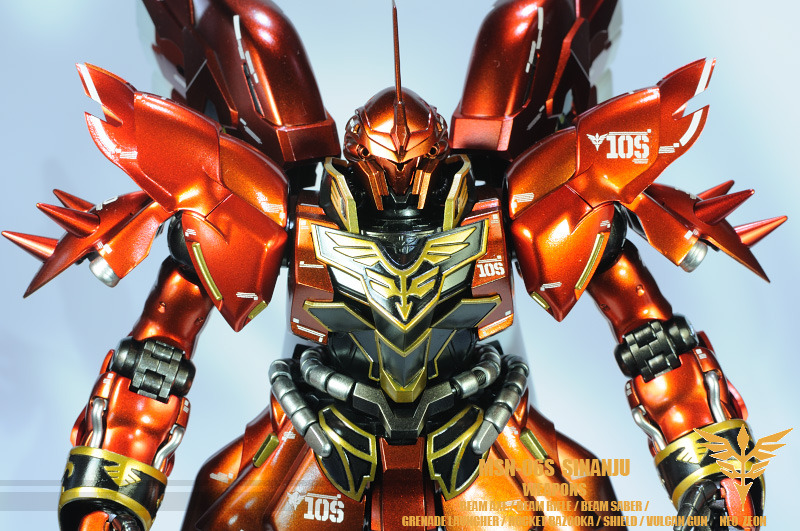
The HG Kshatriya

The MG Tallgeese

The MG GM Sniper

The MG Sazabi

The MG Kaempfer

HG Zaku with a Big Gun

EDITED: To add more Gunpla porn

The MG Sinanju

The HG Kshatriya

The MG Tallgeese

The MG GM Sniper

The MG Sazabi

The MG Kaempfer

HG Zaku with a Big Gun

EDIT2: Added Reborn 100 line.
